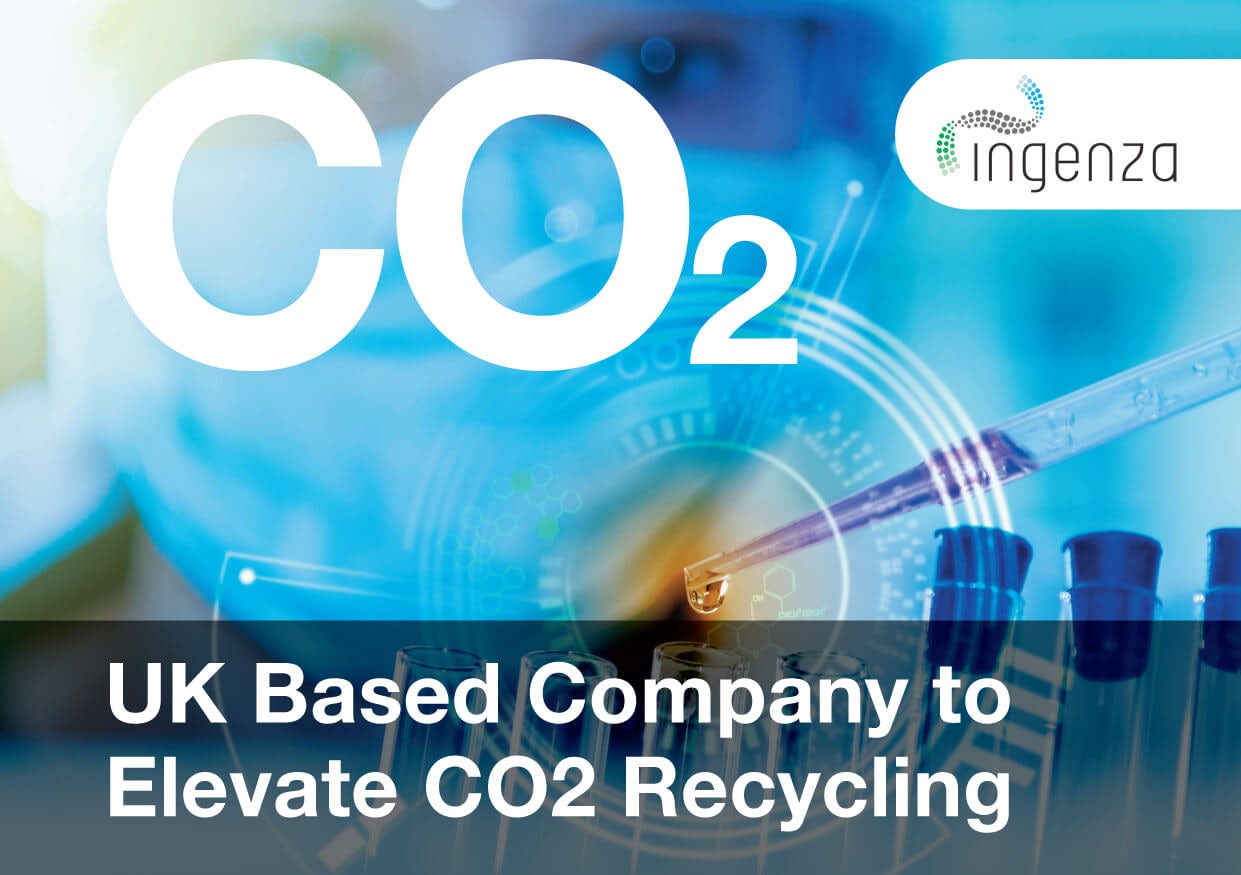UK Based Company to Elevate CO2 Recycling
In late spring 2018, Edinburgh-based biotech Ingenza announced an exciting collaboration with the University of Dundee and Drochaid Research Services – a Scottish research company, taking aim at waste carbon generated by industrial biotech manufacturing applications.
The proposed basis for the collaboration is “capturing and recycling” the emerging CO2 streams that evolve during fermentative bioprocessing. These would then be used as supplementary carbon feedstock for bio-based chemical manufacturing. Essentially, this should circularise the pathway of carbon dioxide in the atmosphere as much as possible.
Dr Ian Fotheringham, managing director and co-founder of Ingenza, says that environmental motives are at the heart of this project: “This is a really exciting venture for Ingenza, and reflects our commitment to sustainable solutions. The project will allow us to apply our expertise and resources to this important aspect of industrial biomanufacturing, as we seek to develop novel approaches to help reduce waste CO2.”
The project is funded through Zero Waste Scotland, a non-governmental body currently helping public and private companies reduce food, carbon and energy wastage, bringing more businesses in line with Scotland’s environmental targets, partly through their Circular Economy Investment Fund.
Zero Waste Scotland’s CEO, Iain Gulland, explains their excitement in supporting the initiative: “We’re delighted to support this new project from Scottish firm Ingenza and its partners, which is exactly the kind of innovative business initiative that the Circular Economy Investment Fund was set up to support. The bioeconomy is a key sector in the development of a more circular economy in Scotland, with tremendous opportunities for turning existing waste and by-products from industrial processes into new business opportunities.”
Considering CO2 emissions as an economy is an exciting conversation that is rapidly gathering traction. The potential to greatly reduce unnecessary emissions through bridging both industries and manufacturing processes in carbon-efficient directions of flow, opens countless innovative and economically attractive possibilities. An increasingly circular economy of CO2 emissions could contribute to as much as 296m tons of CO2 per year in the EU by 2050, and is considered a crucial component in meeting EU climate commitments, as well as the ambitious Paris Agreement targets.
